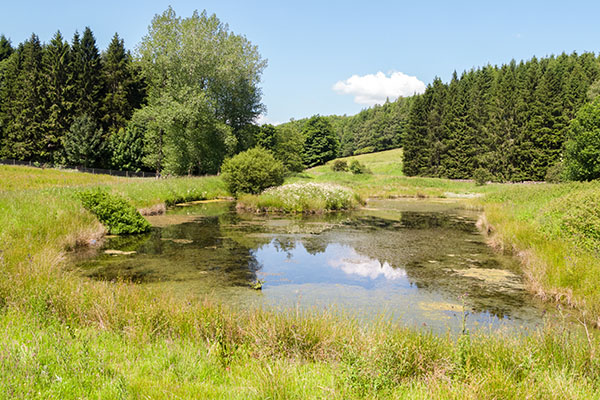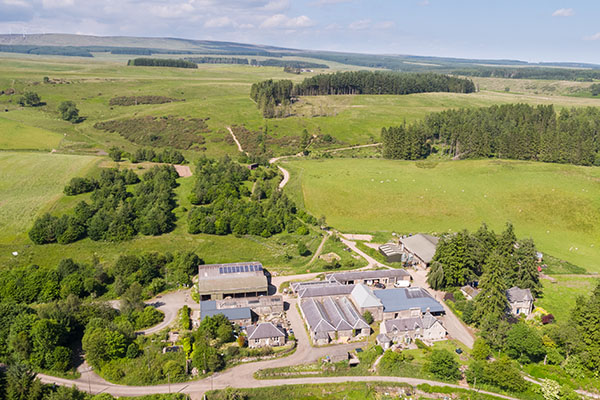Beavers in Scotland get their first reprieve but future remains uncertain
Last week (10th November, 2021) the Scottish Government’s nature agency issued the country’s first ‘edge of range’ beaver translocation licence, allowing two families and one pair of beavers to be moved from Tayside to Argaty Red Kites in Stirlingshire. The beavers will be released into selected pools at Argaty, not far from the population already thriving five miles south on the River Teith.
This win for rewilding and for a family farm is a positive step forward and reflects a small, but significant shift in the government’s approach. It’s significant because this is a break from its past refusal to allow beavers to be relocated to new sites. It’s small because the nearest beaver colony is only five miles away.
It’s also thanks to the hard work and dedication of many people that this has been achieved – not least the strong public support to see these incredible animals enjoy a future along Scotland’s rivers and waterways, where their damming creates wetlands rich with biodiversity. Never have we needed beavers’ ecosystem engineering more than we do now – and with successful reintroductions beginning to take place in England, it seems like we’re finally headed in the right direction.
But the journey to get to this point has been long. Argaty’s owner Tom Bowser had spent months negotiating red tape to secure the translocation licence. Fortunately, Argaty was armed with the experience of running a successful red kite reintroduction programme at the farm, plus the support and technical expertise of the Beaver Trust, who will also financially support the translocation.


The prologue to this story is that since making beavers a protected species in 2019, NatureScot had issued more than 200 shoot-to-kill licences. But just last month (21st October, 2021) following Trees for Life’s crowdfunded court challenge to NatureScot’s beaver killing policy, the Court of Session ruled that these licences had been issued unlawfully because the agency failed to give its reasons for licensing lethal control. The ruling was a win for accountability and transparency, and it was notable that NatureScot has now shared its decision-making process behind the Argaty translocation – something it had failed to do for the previous 200 culling licences.
So where does this leave us now? Last Monday (8th November, 2021) Ariane Burgess MSP from the Scottish Greens submitted a motion to the Scottish Parliament recognising that NatureScot erred in law by failing to record its reasons granting licences to kill beavers. The motion, so far backed by eight MSPs, also looked forward to the agency remedying its approach. Hopefully, this motion will encourage the government to announce a change in policy and allow beavers to be moved to some of the 100,000 hectares of Scotland, from the Highlands to the central belt, that is suitable habitat for them.
As for NatureScot, it is resetting its procedures in order to comply with the verdict. They may resist our view that these reasons should include an explanation of why they would choose lethal control over less harmful alternatives, including translocation. But we remain hopeful that they will opt for a transparent and sincere consideration of all options, and choose the best option for both nature and farmers.
Steve Micklewright, Chief Executive of Trees for Life, said: “This is a wonderful and heroic rewilding result for our friends at Argaty Red Kites, who have spent months battling through government red tape to save two beaver families and a beaver pair from a death sentence.
“More broadly, NatureScot’s welcome and much-needed policy shift here breaks with the Scottish Government’s past refusal to allow beavers to be relocated within Scotland. This opens the door for a big win for nature, climate and farmers by allowing more beavers to be relocated to the vast areas of Scotland identified by NatureScot as perfect beaver habitat.
“A key step for NatureScot is to make it much easier for landowners to gain a beaver relocation licence. NatureScot had handed out beaver killing licences too readily – while the Bowser family at Argaty faced a year of painstaking discussions, delays and complex bureaucracy before NatureScot finally allowed beavers to be saved and moved to the safe haven offered by the farm.”
Tom Bowser, owner of Argaty Red Kites, said: “We are delighted that our application has been approved and cannot wait to bring beavers to our farm. It will be such a thrill to introduce our visitors to these wonderful animals and to witness the beavers’ amazing biodiversity-boosting work.
“Obtaining the licence has been challenging, has taken a long time and a lot of hard work, and we hope this will help the process become more streamlined for viable projects in the future.
“We want to thank Beaver Trust for supporting the project financially and with technical expertise. We are also grateful to the many hundreds of people who supported our consultations, and to the landowners who allowed beavers to be trapped and removed from their land.”

